The term “Cancel Culture” – the practice of collectively blocking someone (usually a public figure) on social media or other venues because of a comment or action – has been in the news lately. Some say it’s the natural consequence of dealing with abhorrent behavior, while others think it suppresses speech and has a chilling effect on the free exchange of ideas. In fact, Cancel Culture is actually new name for an old practice — social ostracism.
When Americans have wanted to stop others’ objectionable activities, and didn’t have the law or the sufficient funding on their side, they have resorted to blaming, shaming, and shunning. They have blackened the character of perceived offenders. They have refused them service in stores. They have prevented them from moving into certain neighborhoods. And they have organized boycotts of businesses owned by the opposition.
Of all the forms of cancelling, this last might be the most effective. In fact, it was powerful enough to unite the American colonies and bring the first Continental Congress to session.
In 1765, the Parliament of Great Britain enacted the Stamp Act, which placed a surcharge on essential items sold in the American colonies. Colonists protested — less to the new tax than the fact that Parliament had imposed it without consulting the colonists’ elected assemblies.
In time, protests led to demonstrations by angry mobs. In Boston, a group calling themselves the Sons of Liberty demanded that Massachusetts’ tax collector resign. When he didn’t, they burned his effigy in the streets, then set fire to his office building. He got the message and quit. The mob then attacked the house of the lieutenant governor, a close friend of the tax collector, and tore it down. In Newport, Rhode Island, a mob hung effigies of the local stamp distributor and leading Tory politicians outside their homes before cutting off the effigies’ heads.
But New York merchants knew such demonstrations would only strengthen British resolve. They had a better idea for convincing Parliament to rescind the Stamp Act. They would stop importing British goods. Soon they were joined by merchants in Boston, Philadelphia, and other colonial ports.
When English merchants saw a sharp drop in their export sales, they successfully pressured Parliament to repeal the Stamp Act. But Parliament felt it needed to reassert its authority. So, in 1767, it passed the Townshend Acts. These gave Parliament the ultimate power to tax the colonies. And they imposed duties on exported products that colonists couldn’t make for themselves, such as paper, glass, salt, lead, paint, and tea.
Merchants in New England were quick to revive the non-importation policy. The Sons of Liberty spread out through Massachusetts, Connecticut, and Rhode Island to coax or pressure 24 towns to boycott British goods. Meanwhile, in Boston, more than 60 merchants and traders signed the “Boston Non-Importation Agreement.”
Traders in port cities like Philadelphia and New York also signed the Agreement. In South Carolina, merchants, planters, and artisans united to enforce non-importation. British goods in American ports were either stored or shipped back to Britain.
Within two weeks, only 16 Boston merchants still refused to join the boycott. Other merchants now voted to ostracize the tradesmen who wouldn’t honor their embargo.
As the movement spread, so did the pressure on the uncooperative merchants. They were publicly denounced.
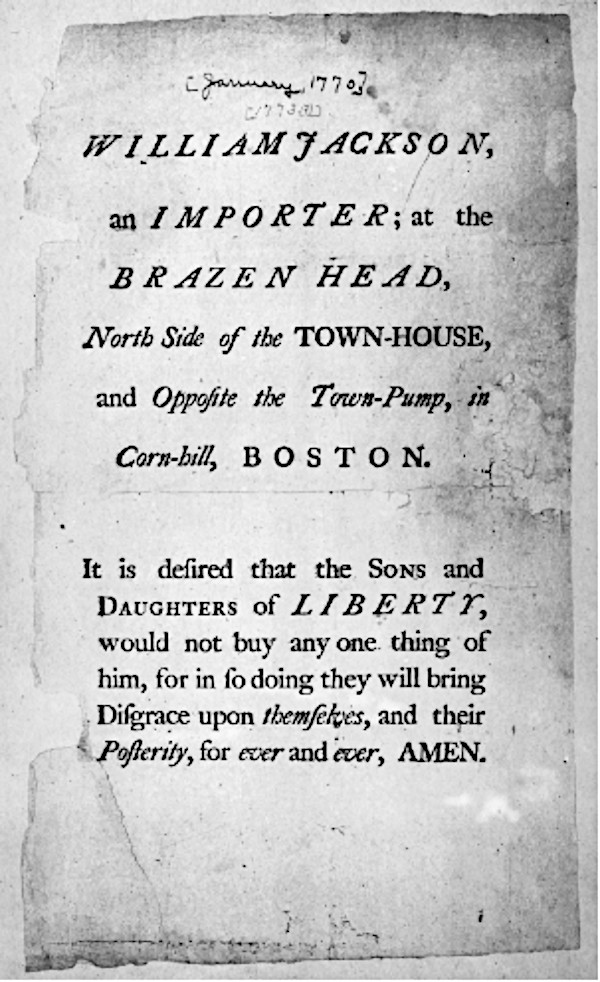
Their names were published in the newspapers and their businesses shunned. In Maryland, the colonial assembly branded them “enemies to the Liberties of America.” In August 1769, the Boston Chronicle printed names of merchants still trading in British goods.
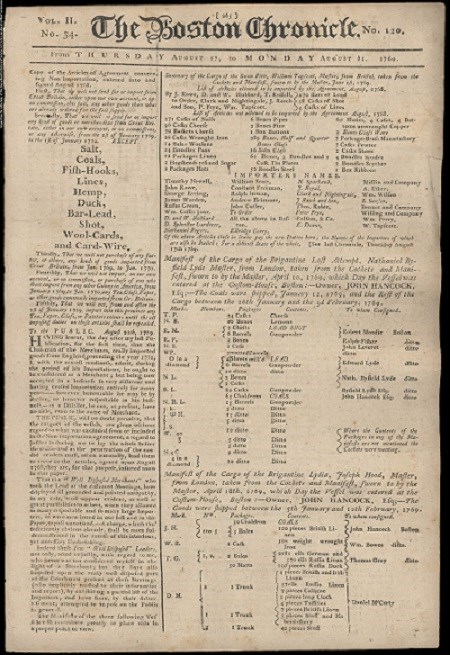
In New York, the boycotters “doxxed” offending merchants, giving details of their business and where they could be found in the city.
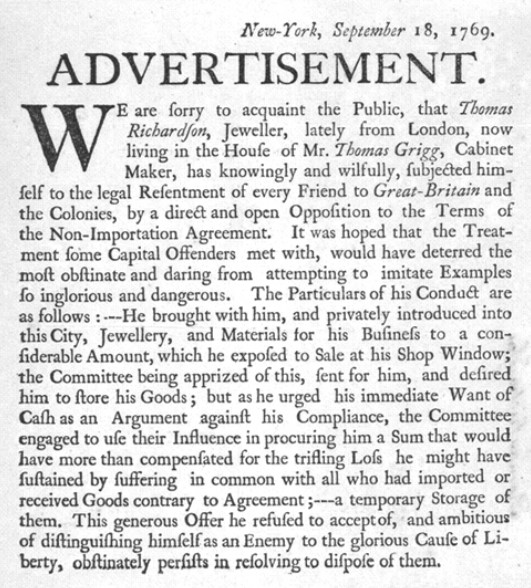
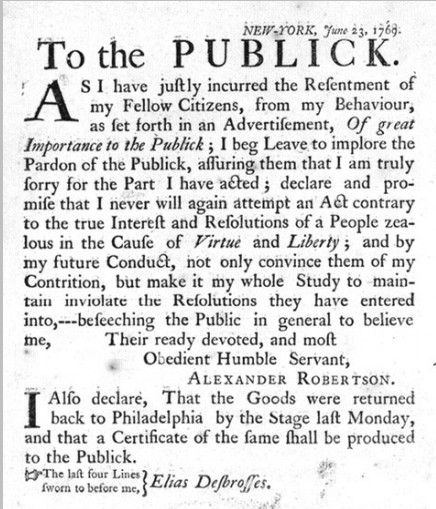
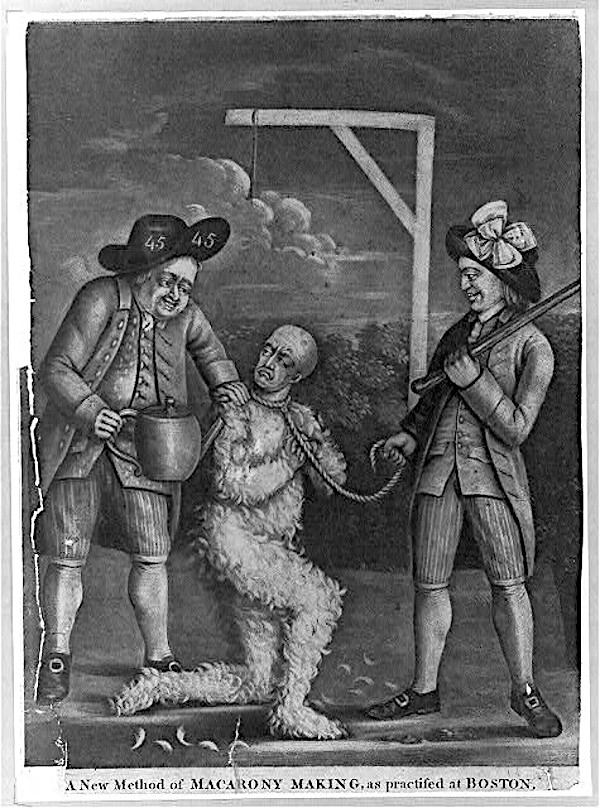
Rhode Island kept out of the embargo, seeing it as a business opportunity. The merchants of Rhode Island crossed into Massachusetts to sell imported British goods. In response, other colonies argued for cutting off trade to the offending colony. New York effectively shut down all critical business with Rhode Island. Suddenly alone, the Rhode Island merchants joined the non-importation agreement.
In Boston, the Sons of Liberty were growing increasingly resentful. They led mobs that vandalized stores selling British goods and threatened merchants and customers within them.
Sensing that the colonial cancelling was getting out of hand, the British government sent 2,000 soldiers to Boston to restore order. In February, when a mob attacked a royalist’s store, a boy was shot and killed. And on March 5, a mob began throwing snowballs and stones at British soldiers who fired into the crowd, killing five colonists, in what became known as the Boston Massacre.
The non-importation agreement ended on January 1, 1770, though Boston merchants kept their embargo going until October. By that time, the Townshend Acts duties had been removed on all items — except tea. Resentment over the tea tax ultimately led to Boston Tea Party, in which 342 chests of tea were dumped in Boston harbor.
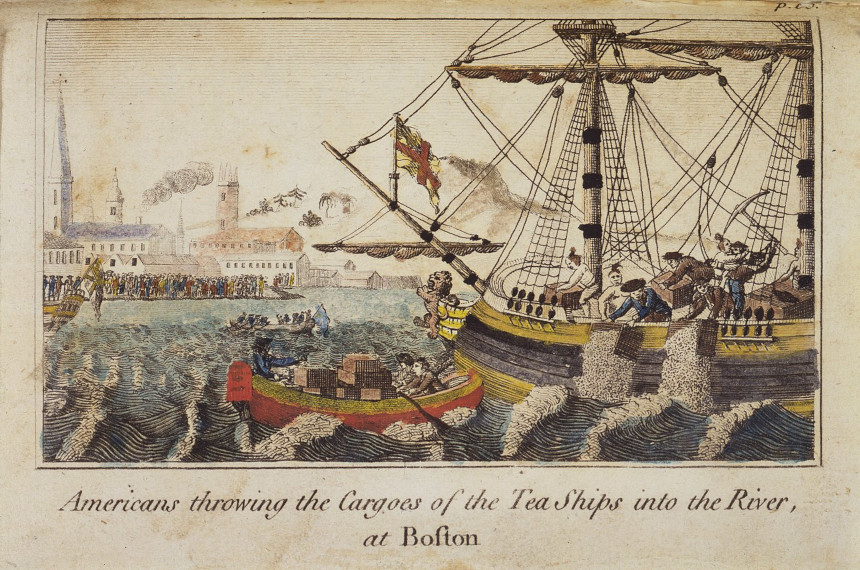
Parliament responded with The Coercive Acts in 1773. They replaced Massachusetts’ locally elected government with crown-appointed ministers. And they ordered all rebellious colonists shipped to England to stand trial.
Once again, colonists turned to their old, reliable weapon: cancelling imports and the people who sold them. But this time, merchants wanted to ensure all colonial merchants obeyed the boycott. Both tradesmen and consumers suspected each other of breaking the embargo. The solution was a request for each colony to send representatives to meet and establish rules and penalties to enforce non-importation.
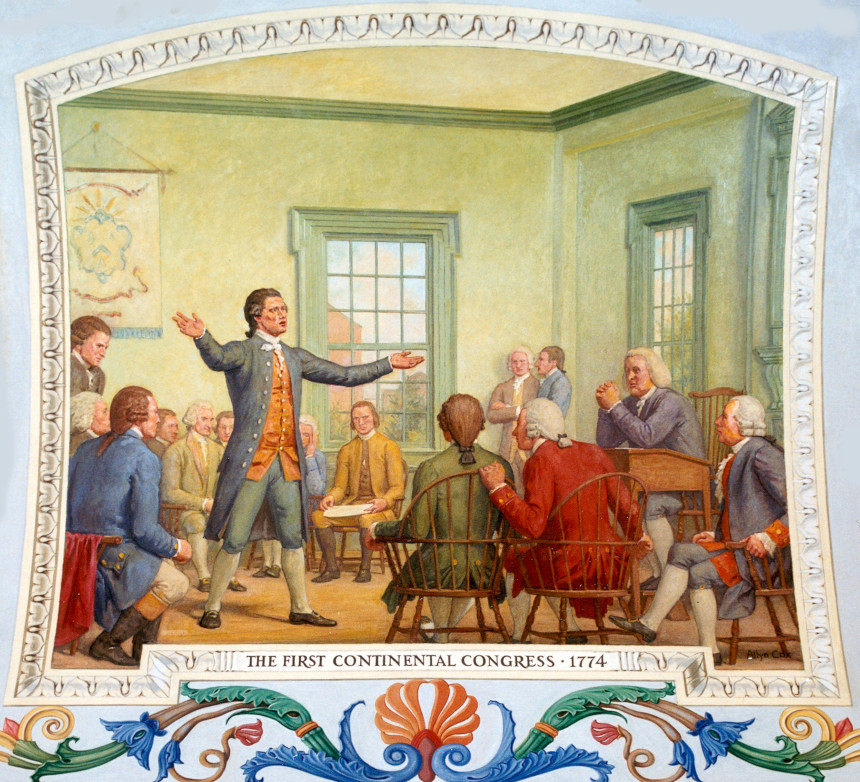
Thus, in 1774, the first Continental Congress of the colonies met and passed the Continental Association: a colony-wide agreement to boycott British goods.
Years later, when Abraham Lincoln spoke of the union of the state, he said the Union was older than the Constitution. “It was formed, in fact, by the Articles of Association in 1774.”
Featured image: Library of Congress
Become a Saturday Evening Post member and enjoy unlimited access. Subscribe now
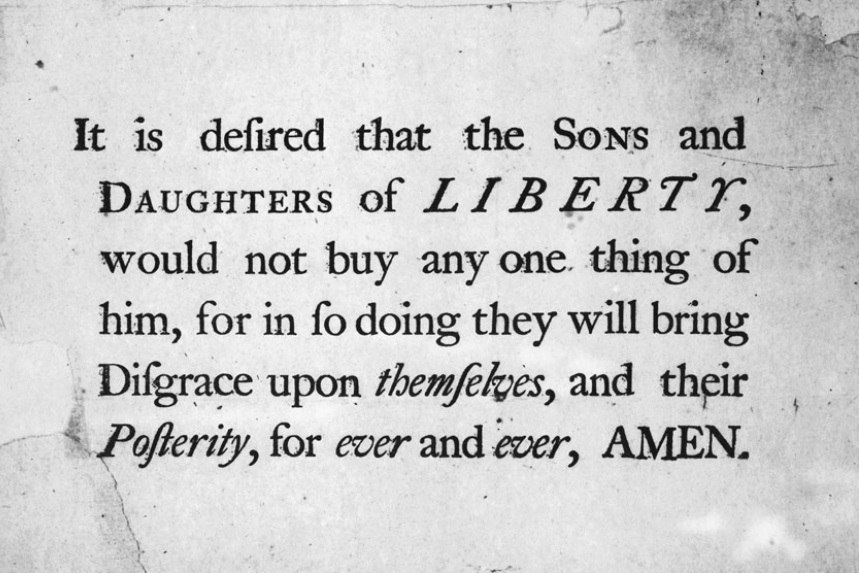



Comments
Poloe E. Dockery
This article applies a modern concept to an event in antiquity. Though “The Revolution” is the ultimate disagreement again the established magistrate, Revolution isn’t a synonym for ‘Cancel Culture,” which is most definitely anti-Revolution. ‘Cancel Culture” promotes the established state, carries the opinion of the controlled media, and executes the government’s will over the people. They destroy the platform of any dissenting opinion. This article is a prime example of promoting a false cipher to give declarations as “The will of the people” when in reality (Cancel Culture) it’s controlled propaganda design by the state for losing those very freedoms the Revolutionaries fought for in 1776. #alldidnotbow
One of the problems I have today with cancel culture is that they are cancelling things that others wish to partake in, such as going to hear a speaker on campus, but not being able to attend because the cancel culture riots, protests and commits violence so the speaker must bow out due to threats, or the entrance is blocked and made impassible by threats to attendees. I enjoy hearing all sides of an issue, attending debates, and giving people the chance to share their story and view. This has been nearly impossible the last few years, and it frightens me. This cancel culture even goes so far as to walk into a church during a service and disrupt it and scream at the pastor and parishioners, and also has interrupted funerals of fallen soldiers with complete lack of respect to the family. Today’s cancel culture is a far cry from that of the Colonists.
We may one day see our Country governed by one party. What will America then be governed by? America will become an oligarchy government.
Apples To Oranges. Taxes and Tyranny imposed by Parliament upon Colonies without any representation What-So-Ever vs Authoritarianism and Mob Rule of intimidation from the streets to Congress. The only crime committed by we the victims is buying into the tool of vises making the innocent subject to “either/or”. Tell me, How is it that a house speaker suddenly gains such control that overshadows the Executive Branch while kneeling to Marxism? This is no comparison by any means. This is no “cancel culture”. This is overthrowing our Governmental, and Constitutional Rights by Foreign, and Domestic Tyranny from the streets to Congress. This article appears tailored to suggest acceptance of such an abomination. What would the founders of the Saturday Evening Post think? Behind the beauty Cracks Appear.
@Midnight_Rider_1961 My god, you are dumb. You should read the First Amendment before you start accusing people of “canceling” it. Here, just look at the beginning of the first sentence: “Congress shall make no law…” *CONGRESS* It says nothing about businesses. Interestingly, just as you say you can change the channel if you don’t agree with something, TV networks are free to choose what they do and do not broadcast.
Nobody forces any network, like say Fox or OANN, to air anything that Hillary Clinton says. And you’d probably be pretty mad if somebody DID force whatever your favorite network is to air that. That’s all that Twitter and Facebook are doing. What’s most ironic is that if Twitter and Facebook were forced by law to broadcast something somebody said, that actually WOULD be a violation of their rights. You’ve got it backwards. Twitter and Facebook aren’t forcing you to “hear, see, and agree with their points of view only,” but rather they are allowed to NOT be forced to promote things they don’t agree with.
The First Amendment doesn’t shield anyone, including the president, from consequences from whatever he or she says. It simply says “Congress shall make no law” restricting that speech. Your rights are in no way being eroded by a company choosing not to broadcast something they don’t agree with. Just as you say with television, you’re free to “change the channel” and use a different website. Nobody is forcing you onto Twitter or Facebook.
The Saturday Evening Post is typically a conservative magazine. We all have choices of reading material, however, the article leads in to describe current limiting situations. The news media is the main enforcer now. Now that their favored team is in the White House, peace should be restored and press conferences should be peaceful and articles of critisim should decrease-they would not be critical of their team. Yes-there are very few conservative newspapers and news networks. Well, we have already seen big changes in the press reports.
The essay’s premise is flawed. Those accusing people in leadership roles of “Cancel Culture” assert that preventing someone from spreading lies and misinformation to sew chaos and social disruption is “Cancel Culture.” That is madness. It was the lies about the election results and the coronavirus and rigged voting machines that created a disastrous moment in the country on January 6, 2021. We all have a right to free speech here; we savor it and fight for it. But we do not have the right to “yell fire in a crowded theater” as lawyers like to say. In other words, there is no right to tell lies that will likely result in imminent harm. On January 6, 2021, the President of the U.S. (Donald Trump) did exactly that. He had done it for months, in fact, and the result was predictable. Those who follow this line of thinking likewise should know they have a right to free speech but not to tell lies, and spread misinformation intentionally (like Alex Jones or Sidney Powell) to sow discord and create chaos. That right is not guaranteed in our society. And that is a good thing.
hjb38
Comparing “Cancel Culture” to what is happening on the internet and in the news today. Really? This is like relating abortion rights to the right to privacy, or oranges to apples. It is too much of a stretch.
You unfairly compare the “Cancel Culture” as you call it back then to what we have today. Today’s “Cancel Culture” is devoid of any rules whatsoever and completely cancels out our basic First Amendment Right to Freedom of Speech. I may not agree with what I hear an idiot like Stephen Cobert or Jimmy Kimmel say or does on TV but I have the right to turn off my TV or go to another channel. Today’s “Cancel Culture” wants to force you to hear, see, and agree with their points of view only without the benefit of being able to have access to an alternative or one more agreeable to your beliefs. They want to shove their beliefs down our throats whether we like them or not.